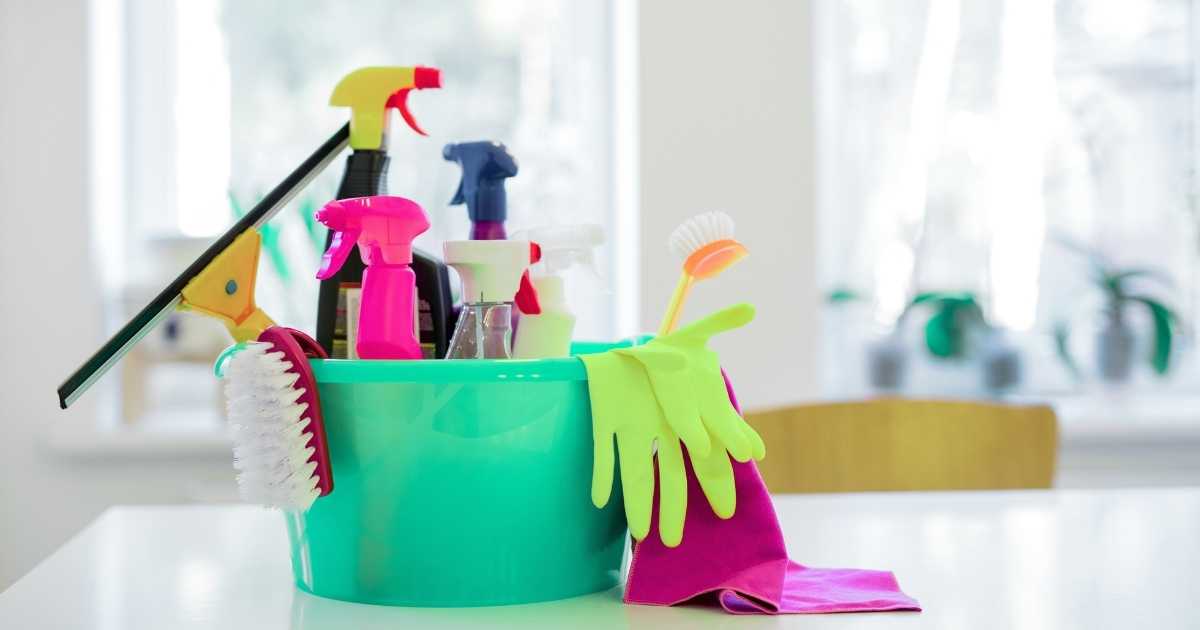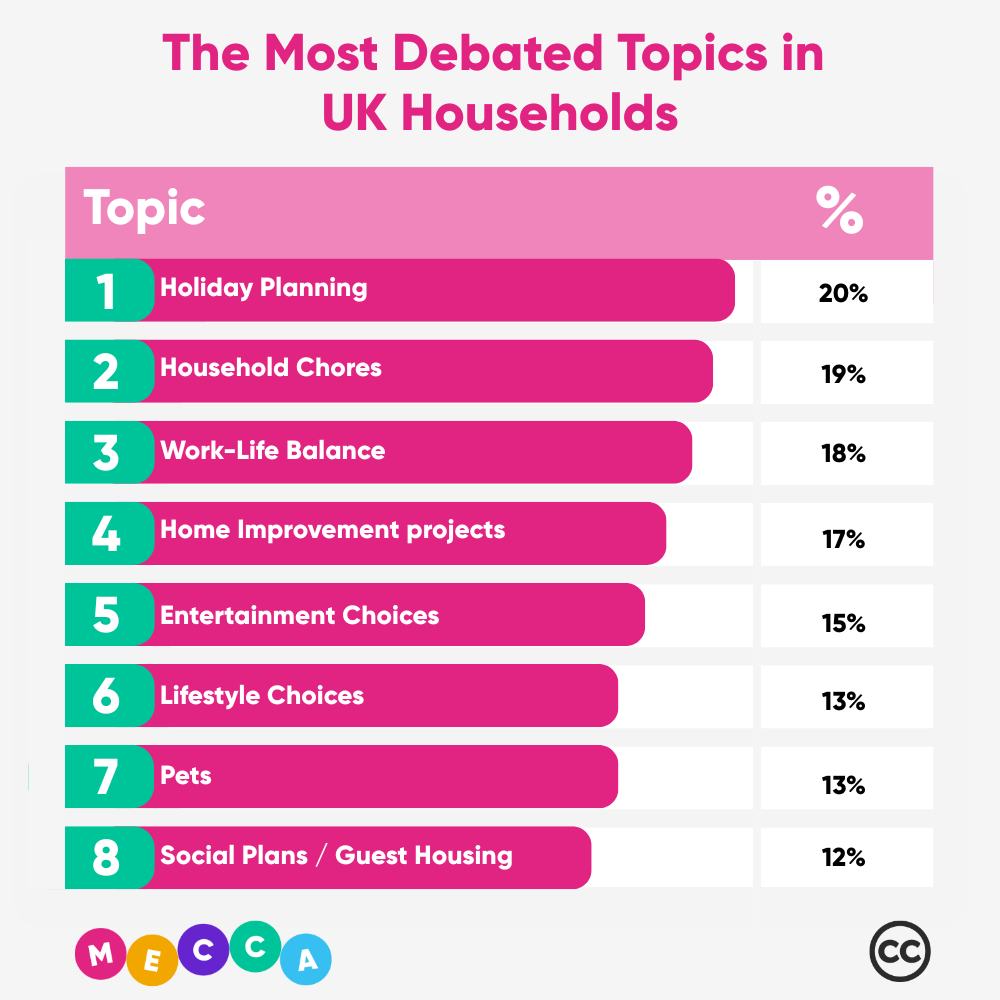The Great British Debate Index: Household Edition


Brits Admit to Playing the Waiting Game When It Comes to Cleaning Up at Home
Household chores aren’t exactly at the top of anyone’s fun list. But it turns out, many of us are turning tidying into a bit of a game by pretending not to notice the mess—just to see who’ll give in and clean it up first.
Our latest Mecca Bingo survey reveals that nearly one in five Brits (19%) regularly argue about household chores. And the plot thickens—over a third (35%) of us admit we’ve intentionally ignored a mess, waiting to see if someone else will swoop in and clean it up.
Holiday Plans or Who’s Doing the Hoovering?
Chores aren’t the only thing sparking domestic debates. Brits are also butting heads over everything from holiday planning to home improvement projects.
The Top 10 Most Debated Topics in British Households
| Topic | % of people who argue about this topic |
|---|---|
| No Topic | 20% |
| Holiday Planning | 20% |
| Household Chores | 19% |
| Work-Life Balance | 18% |
| Home Improvement Projects | 17% |
| Entertainment Choices | 15% |
| Lifestyle Choices | 13% |
| Pets | 13% |
| I Live By Myself | 12% |
| Social Plans/ Guest Housing | 12% |

Top Cities and Their Most Debated Household Topics
| City | Topic | % of people who argue about this topic |
|---|---|---|
| Norwich | No Topic | 31% |
| Cardiff | Household Chores | 30% |
| Sheffield | Pets | 27% |
| Bristol | Holiday Planning | 25% |
| Belfast | Holiday Planning & Household Chores | 24% |
| Nottingham | Holiday Planning | 24% |
| Birmingham | Work-Life Balance | 23% |
| Edinburgh | Household Chores | 23% |
| London | Holiday Planning | 22% |
| Manchester | Holiday Planning | 22% |

The Clean-Up Standoff is Real
It’s not just about arguing—35% of Brits admit to pretending they didn’t see a mess in hopes someone else would clean it up.
Top 5 Cities Where Brits Ignore Mess
| City | % of people who ignore mess |
|---|---|
| Belfast | 43% |
| Nottingham | 41% |
| Bristol | 40% |
| London | 39% |
| Birmingham | 37% |
Blame the Dog… or the Cat?
One in six Brits have blamed a household mess on their pets—whether it’s crumbs, smells, or knocked-over plants.
Top 5 Cities Where Brits Blame Pets
| City | % of people who blame pets |
|---|---|
| Belfast | 27% |
| Birmingham | 22% |
| London | 19% |
| Manchester | 19% |
| Cardiff | 18% |
Dodging Chores by Staying Late at Work?
17% of Brits admit they’ve stayed at work longer just to avoid the washing up.
Top 5 Cities Staying Late at Work to Avoid Chores
| City | % of people who stay late at work |
|---|---|
| London | 23% |
| Cardiff | 23% |
| Manchester | 20% |
| Birmingham | 19% |
| Plymouth | 18% |
The Cleaning Survival Guide: 5 Expert Tips from Barbara Stern
1) Make Chores a Team Effort
“Blast a couple’s playlist during Sunday bedding changes. Turn chores into bonding time.”
Try a 10-minute reset where everyone tidies their space and one shared area.
2) Fairly Divide the Chores
“Assign chores based on preferences and schedules—not gender.”
- Use tools like Google Keep or OurHome
- Chore boards for kids
- Use the “2 for 1” method: one deep task = two lighter ones from the other person
3) Watch for Red Flags
- Passive-aggressive cleaning
- One-sided emotional labour
- Different standards of cleanliness
4) Structure = Sanity
“Without structure, the home becomes chaotic.”
- Sheets: every 7–10 days
- Flip mattress: monthly
- Curtains: seasonally
- Sofas: bi-weekly
5) Tidy Space, Clear Mind
“Clean-smelling, organised homes reduce stress and improve relationships.”
Even small things—like labelled laundry baskets or calendar reminders—build shared responsibility.
So, What Have We Learned?
Whether it’s arguing over holiday plans, avoiding the washing up, or blaming the cat, Brits are full of cheeky household habits.
At Mecca Bingo, we know life can be chaotic—but there’s always time for a laugh (and maybe a mop).
Methodology
- Survey Provider: Censuswide
- Commissioned by: Mecca Bingo
- Sample: 2,000 UK respondents aged 18+
- Fieldwork Dates: 21–24 March 2025






